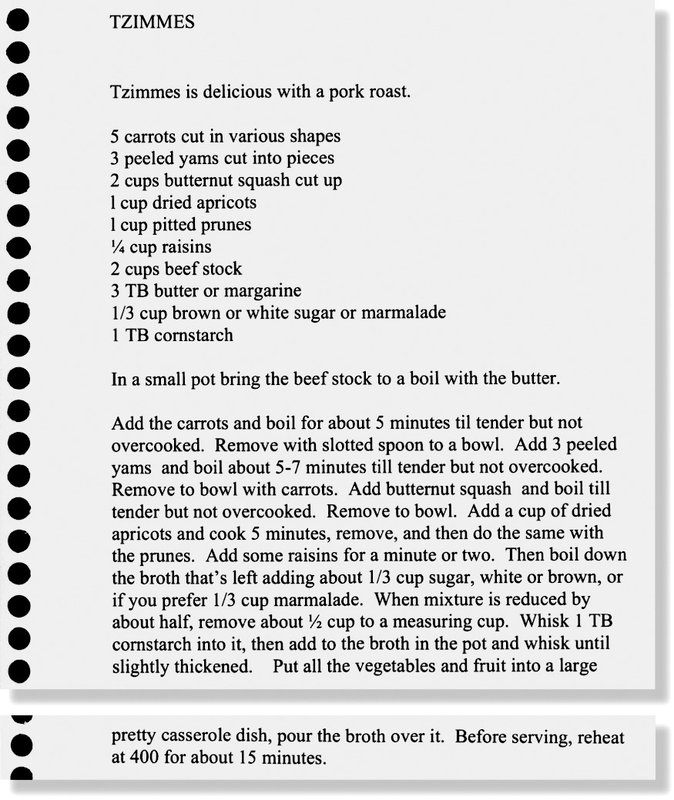Jews and food have a unique bond, and Jews and food seem to have an even more special relationship with mourning. I cannot disconnect sitting shiva from the thought of bagels and smoked fish, and I bet you can’t either.
At Nora Ephron’s recent funeral instead of scattering ashes, they scattered and shared her beloved recipes. Nora is of course best known for her films, many of which had food-related themes. Like so many of us, food pervaded Ms. Ephron’s life and connected her to her Jewishness.
My grandfather was a food chemist for General Foods for more than 20 years but it was only at his funeral, some 15 years ago, that I discovered he had worked on the development of Tang and the freeze drying process for coffee. Pretty amazing stuff, though sad that it took until his passing for this discovery to reach all his loved ones. But now I often kvell to friends and foodie acquaintances alike about this family food legacy.
Everyone who knew my mother remembers her banana bread, a treat she often whipped up from the leftover bananas no one ate. And each time I open her cookbook to carry on this tradition I have vivid memories of chopping walnuts for her as she finished making the batter.
The Nosher celebrates the traditions and recipes that have brought Jews together for centuries. Donate today to keep The Nosher's stories and recipes accessible to all.
Food connects us to those we love in a way that truly transcends words because it reaches multiple sense: the way my mom’s banana bread would smell when it came out of the oven or the sound of my grandfather clanking around in his test kitchen in the basement.
For those that have loved the great Ms. Ephron and her films you can honor her memory with her Tzimmes recipe featured in the New York Times today. And may we all enjoy remembering our loved ones through the food memories and recipes they leave behind.
kvell
Pronounced: k'VELL, Origin: Yiddish, to express pride over something, often one's children or grandchildren.
shiva
Pronounced: SHI-vuh (short i), Origin: Hebrew, seven days of mourning after a funeral, when the mourner stays at home and observes various rituals.



